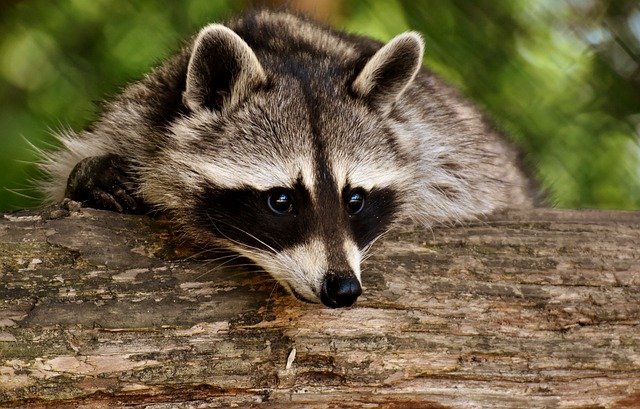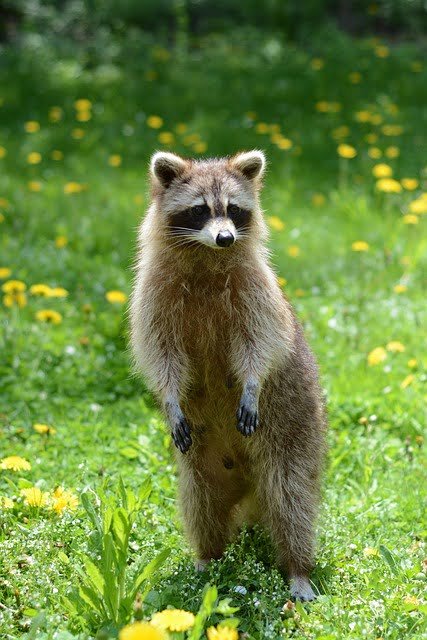Raccoons are undeniably adorable creatures, and it can be tempting to feed them in your backyard. However, animal experts strongly advise against feeding wild animals like raccoons. If you’re considering cutting back on feeding or completely stopping the practice, you may be uncertain about what will happen. In this comprehensive guide, we will explore the natural behavior of raccoons, the potential risks associated with feeding them, and what you can do to discourage their presence in your backyard.

Table of Contents
The Natural Behavior of Raccoons
Raccoons are resourceful creatures that are perfectly adapted to find food in their natural habitat. They have a diverse diet, including nuts, insects, small mammals, birds, fruits, and vegetables. If you stop feeding raccoons, they will not go hungry. Their natural instincts will kick in, and they will resume their hunting and foraging activities to find sustenance.
By not feeding raccoons, you are actually helping them. It allows them to return to their natural habitat and consume the food they should be eating. Feeding raccoons can disrupt their natural behavior and make them dependent on human-provided food, which is not beneficial for their overall well-being.
The Dangers of Feeding Raccoons
While it may seem harmless to feed raccoons, there are several risks and dangers associated with this practice. One of the primary concerns is the potential spread of diseases. Raccoons can carry diseases such as leptospirosis, which can be transmitted to humans through contact with their secretions. This disease can cause serious harm to the kidneys and overall health of individuals.
Feeding raccoons also disrupts their natural territorial behavior. When multiple raccoons are attracted to a food source, it can lead to territorial disputes and aggression between the animals. This can result in injuries to the raccoons themselves, as well as potential harm to other pets or humans in the vicinity.
Additionally, raccoons that become dependent on human-provided food may lose their ability to forage for themselves. This can lead to malnourishment and a lack of essential nutrients in their diet. Feeding raccoons also increases the likelihood of encounters with other wildlife, such as squirrels or birds, as they compete for the available food.
What Happens When You Stop Feeding Raccoons
When you stop feeding raccoons, several things will occur. Firstly, raccoons will revert to their natural behavior and resume their hunting and foraging activities. They are highly adaptable creatures and can find food from various sources in their environment. They will not starve if you cease providing them with food.
By not feeding raccoons, you are promoting their overall well-being and allowing them to thrive in their natural habitat. They will have a better chance of maintaining a healthy diet and avoiding potential conflicts with other wildlife.
Steps to Discourage Raccoons in Your Backyard
If you want to discourage raccoons from visiting your backyard, there are several steps you can take:
- Remove food sources: Ensure that your garbage bins are securely sealed to prevent raccoons from accessing them. Avoid leaving pet food outside, as raccoons are opportunistic feeders and may consume it. Clean up fallen fruits or nuts from trees regularly.
- Use raccoon repellents: There are various types of repellents available that can deter raccoons from entering your property. Ammonia-soaked rags placed strategically around the area can help to discourage them. Additionally, sealing chimneys and other openings in your house can prevent raccoons from entering.
- Secure your property: Consider installing fences or barriers that can deter raccoons from entering your backyard. Ensure that the fences are tall enough and have no gaps that raccoons can squeeze through. Trim tree branches that may provide easy access to your property.
- Educate your neighbors: If you have a neighbor who is feeding raccoons, kindly explain the potential risks and dangers associated with this practice. Encourage them to stop feeding raccoons to maintain the well-being of both the animals and the community.
- Contact local authorities: If the issue persists and becomes a nuisance, you can contact your local animal control or wildlife management agency for assistance. They can provide guidance and potentially intervene if necessary.
Legal Considerations
Feeding raccoons may be prohibited in certain areas due to local regulations or laws. It is essential to familiarize yourself with the specific regulations in your region to ensure compliance. Violating these regulations can result in fines or other legal consequences.

Conclusion
Feeding raccoons in your backyard may seem like a kind gesture, but it can have negative consequences for both the animals and the community. Raccoons are resourceful creatures that can find food on their own, and feeding them disrupts their natural behavior and increases the risk of disease transmission. By not feeding raccoons, you are promoting their overall well-being and allowing them to thrive in their natural habitat. Take proactive steps to discourage raccoons from visiting your backyard and educate others about the potential risks. By doing so, you can create a safer environment for both humans and wildlife.
Remember, it is always best to admire raccoons from a distance and respect their natural behaviors.





